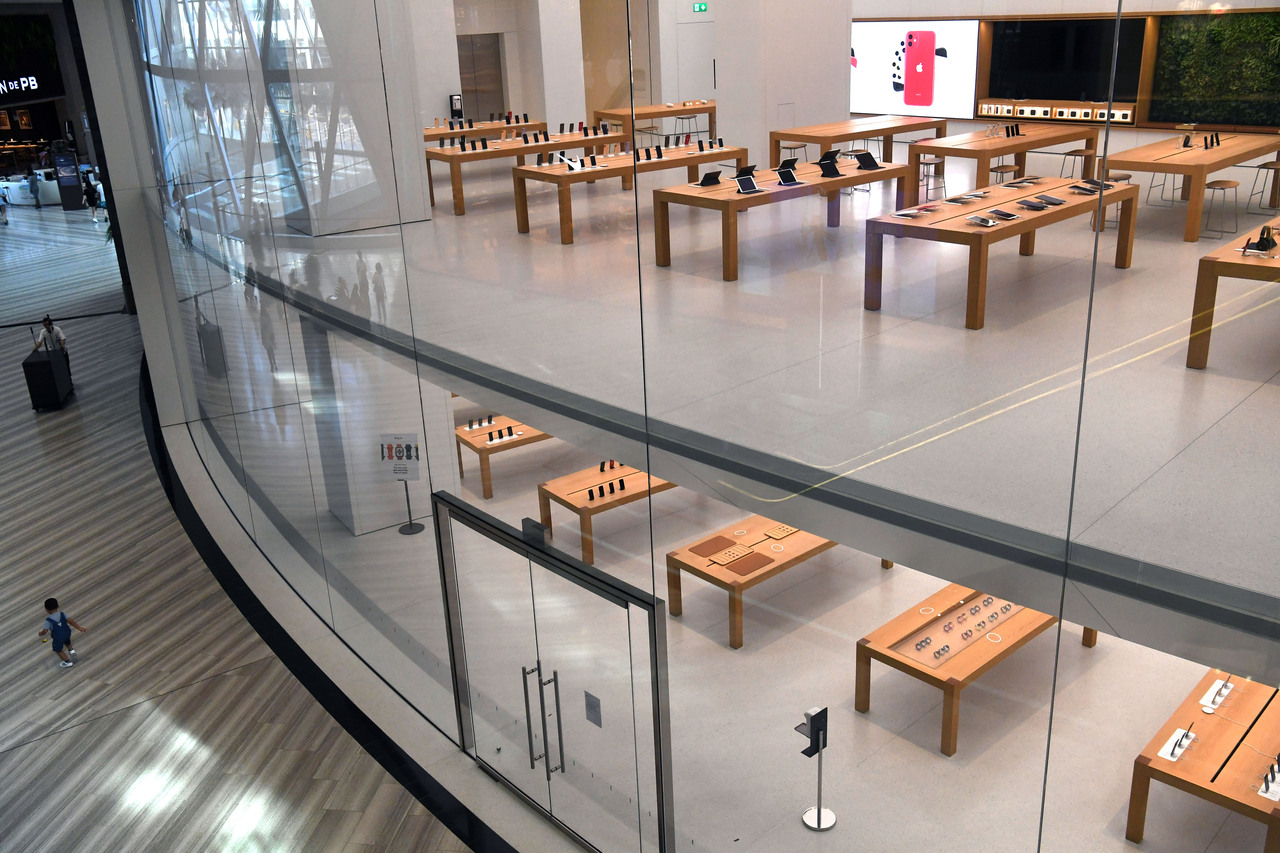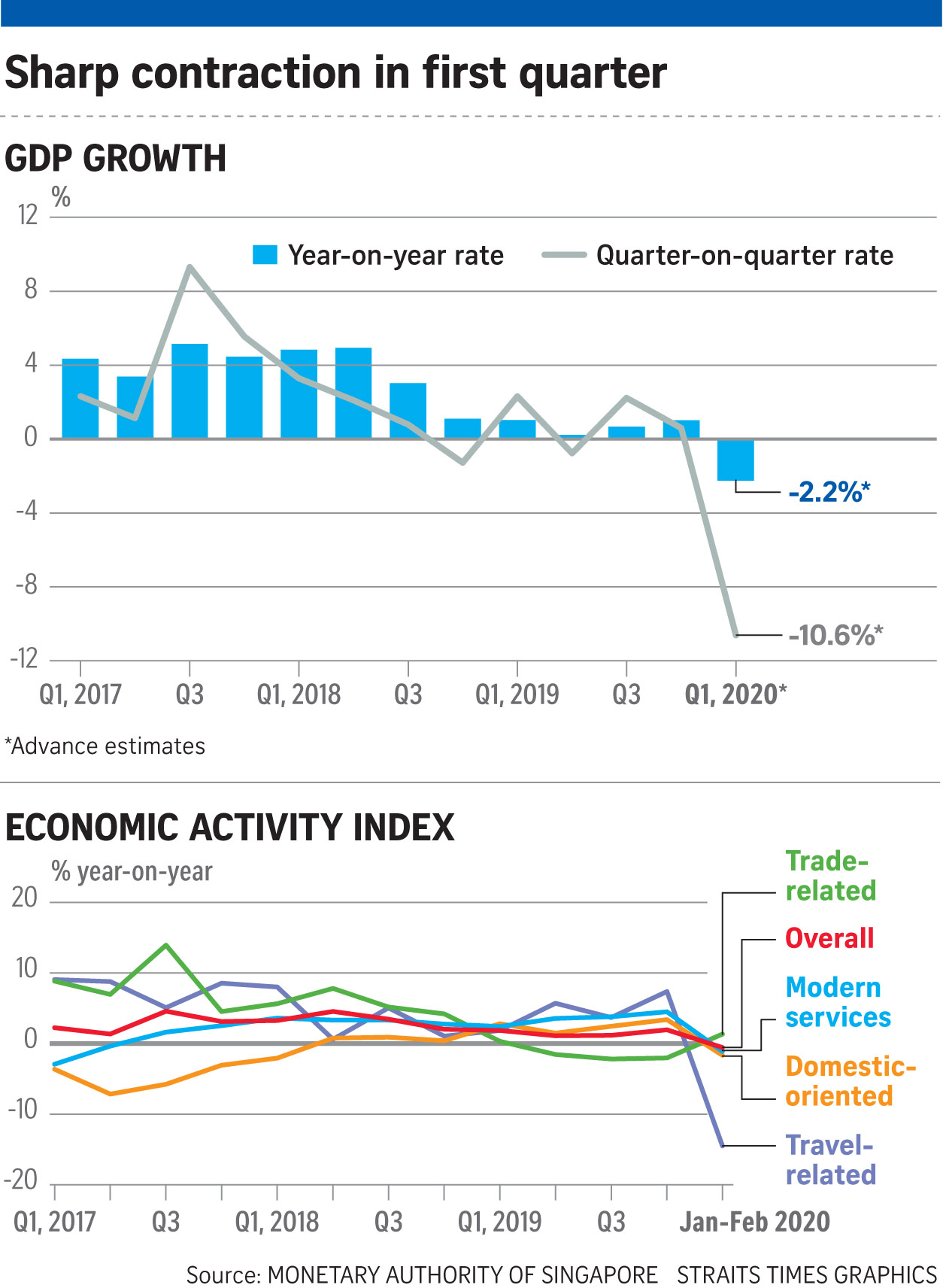Wage cuts loom and layoffs expected in retail, travel, F&B amid coronavirus pandemic
Firms in many sectors likely to reduce labour costs via wage and headcount cuts, says MAS
Sign up now: Get ST's newsletters delivered to your inbox

Firms from many sectors of the economy are likely to reduce labour costs.
ST PHOTO: DESMOND FOO
Pay cuts are looming amid the pandemic while unemployment is set to rise among workers in the retail, travel, food and beverage, and recreation sectors.
Hiring in travel-related and consumer-facing industries, which collectively employ almost 20 per cent of the workforce, was already seeing weak growth before the outbreak, the Monetary Authority of Singapore (MAS) noted yesterday.
They are now even more in the firing line as the severe reduction in economic activity stemming from containment measures here and across the globe takes its toll.
Firms from many sectors of the economy are likely to reduce labour costs via a combination of wage and headcount reductions as revenues shrink, MAS said.
Measures could include asking staff to take no-pay leave, and accept shorter work weeks, wage cuts and reduced bonuses.
The concerns are all too real for Ms Pearline Ho, 30, who usually works on the shop floor at Books Kinokuniya's Ngee Ann City store, but now does webstore operations two or three days a week.
Ms Ho uses her annual leave the rest of the time but will run out of vacation time next month, with no idea of what comes next.
"If they put me on no-pay leave, I will have no choice. But I don't think they will drastically cut us," she said.
Job openings in retail, F&B and recreation are scarce.
Beer distributor Lim Jialiang, 29, was expecting to start a new job as a local sales representative for an Australian brewery, but this fell through as the outbreak unfolded.
"I don't have the cash flow to pay myself for my distribution business at this stage," he said. "I basically have no income now."
Mr Lim is living off his savings, which will last him three months, as well as loans from friends.
The owner of L'eclair Patisserie, who wanted to be known only as Ms Looi, said that while the bakery has not cut wages, it may have to ask full-time employees to go on no-pay leave if the tightened measures extend beyond May 4.
She stopped employing part-timers at the start of the outbreak to reduce costs.
"I don't know how I can pay anyone with no revenue, but the dilemma that businesses are facing is that if we put staff on no-pay leave, we may not have access to government help in the future," said Ms Looi, 31.
She is looking at alternative arrangements to manage staff costs, such as taking unused working hours this month to offset an increase in hours in June.
Arts administrator Ke Weiliang finished a contract with a local performing arts company last month, only to find that all other openings had dried up.
He now does GrabFood delivery on foot, working as many as 12 hours a day for as little as $40.
"It will take some time for the performing arts to get back on track as the public may not be allowed to gather in crowds for some time.
"I may have to find work outside of the arts in another full-time position like copywriting. Either that, or get a bicycle," he said.
Government help for business through the Jobs Support Scheme and other measures should prevent a large spike in unemployment in the near term, MAS said.

These measures should also reduce the possibility of more lasting damage to the economy through the loss of talent, it added.
The central bank said if government support is insufficient to offset losses, firms are likely to cut wage costs first before laying off staff.
But an increase in retrenchments and overall unemployment is expected for the year, given the shock to the Singapore economy, which is forecast to contract by between 1 per cent and 4 per cent this year, compared with last year.
MAS noted that a rise in unemployment has historically been associated with higher firm closures in the next quarter, which suggests that unemployment typically spikes only when companies are about to shut.
Singapore Retailers Association president R. Dhinakaran said rental waivers ought to be extended beyond next month, perhaps even to the end of the year.
Landlords need to work out fair agreements based on turnover with sales-starved tenants, he added.
"Otherwise we may have to close shops. If landlords manage this effectively, then retailers can manage reasonably and layoffs need not happen," he said.


